
The Free Press

On October 7, 2024—one year after Hamas invaded Israel, murdering 1,200 people—The New York Times published an episode of its flagship podcast, The Daily. It featured two men on opposite sides of the conflict: an Israeli man who’s moved from hotel to hotel after Hamas destroyed his community, and a father trying to survive in Gaza.
But while the Israeli man was described in full—as a “liberal” 44-year-old father named Golan Abitbul, born and raised on Kibbutz Be’eri, the Palestinian man’s identity was shrouded in secrecy. The New York Times simply referred to him as “Hussein, a Palestinian man living in Gaza.” The host, Sabrina Tavernise, did not ask Hussein any follow-up questions when he revealed that, unlike most Gazans right now, he has “a good income” and is able to pay about $1,000 a month for rent. And she let him explain—uninterrupted—about why, a year later, the war ravages on.
“I’m surprised that there is humans doing this force,” Hussein said of Israeli soldiers, in broken English. “How could human became this evil, killing others, imposing collective punishment on over two million people with no reason? What are they going to gain? Why they are doing this?”
But what Tavernise did not say is that “Hussein” is Hussein Owda, whose name is listed in the show notes on audio platforms that host the podcast, including Spotify and Apple Podcasts. And what The New York Times does not reveal is that Owda’s background suggests links to Hamas. A simple Google search turns up his LinkedIn page, where he publicly lists an eight-year stretch working for the Municipality of Gaza, which sources told me is controlled by Hamas; a new job at the controversy-riddled United Nations Relief and Works Agency for Palestine Refugees in the Near East (also known as UNRWA); and an eight-month stint at Muslim Hands, a nonprofit exposed by the UK’s Telegraph in 2014 for having “close ties to the Muslim Brotherhood.” Hamas was originally established in the 1980s when it spun off from the local Palestinian branch of the Muslim Brotherhood.
From September 2015 until August 2023, Owda lists his job as the head of public relations for the Municipality of Gaza. “Every government structure in Gaza was run by Hamas,” Jon Schanzer, a former terrorism analyst at the U.S. Department of the Treasury, told me. “The people that were paying his salary ultimately would’ve gone up the chain to Hamas itself.” Schanzer added that Owda was likely “providing propaganda” to advance the mission of Hamas.
Meanwhile, three on-the-ground sources in Gaza—two of whom were provided through The Center for Peace Communications, which has a network of sources in the region—all confirmed to The Free Press that Owda has links to Hamas. One Gazan man who has met Owda said that “Employment at the municipality requires approval from the internal security, the local mosque’s emir, and Qassam Brigades intelligence,” referring to Al-Qassam Brigades, the militant wing of Hamas behind the group’s October 7 attack. Another Palestinian source in Gaza told The Free Press, “It’s impossible to get a job in the municipality unless you’re with Hamas.” (All sources in Gaza asked to withhold their names to protect them from possible retaliation by the terrorist group.)
In September 2023, one month before Hamas’s invasion of Israel, Owda’s LinkedIn page states that he left his job at the Municipality of Gaza to take a job as Multimedia Officer for UNRWA, the UN-controlled aid agency with suspected links to Hamas. In January, the U.S. State Department announced it was temporarily halting new funding to UNRWA, after being “extremely troubled” by allegations that twelve employees from the agency had participated in Hamas’s October 7 attack.
When The Free Press asked The New York Times why its podcast concealed key parts of Owda’s identity and his Hamas ties, the paper replied with a statement. “For the October 7, 2024 episode of ‘The Daily,’ we interviewed Mr. Owda as a father and private Gazan citizen to offer a snapshot of life on the ground, one year after the attack. We are aware of his employment with UNRWA, which we’ve disclosed in our earlier reporting,” said Danielle Rhoades Ha, SVP of external communications for the Times.
In the link Rhoades Ha sent, Owda is cited as “an aid worker with UNRWA.” In total, the Times has quoted Owda four times—in two podcast episodes and two stories—citing his work for UNRWA twice but revealing no other affiliations.
When The Free Press asked Owda for comment via his Instagram account, he replied in a message, “Anyone knows me would know that I am far away from politics, and I don’t agree with Hamas. I only believe in humanity. And by the way none of the organizations I worked with is controlled by Hamas,” signing off with a laughing emoji.
Former Treasury analyst Schanzer, who is now a researcher at the Foundation for Defense of Democracies, said that not everyone employed by Hamas is a terrorist. Some, he said, are just trying to “put food on the table for their families.” Perhaps Owda is one of those people. And yet, for the past decade, he has been employed by entities linked to Hamas, and that ambiguity is why, Schanzer said, all cards should be laid out for the reader.
“Just saying he’s a municipal worker in this context?” he asked, referring to Owda. “It’s almost glib. Not mentioning his connection to Hamas at all? Now that’s a problem.”
Since Israel’s war against Hamas began, multiple legacy media outlets have quoted Owda as an ordinary citizen trying to survive the war. The first time The New York Times quoted Owda was last October, right after Israel launched its retaliatory ground invasion in Gaza, in which he said “every basic need for humans became a distant dream for us.” NBC News, in a report from this past March, identifies Owda as a “computer engineer” who said his home was destroyed—along with that of his parents, sister, brother, uncle, and grandfather. In January, Al Jazeera described Owda’s work as multimedia producer for UNRWA as “highlighting the plight of other displaced Palestinians and their suffering in light of the lack of safety, shelter, food, water, and healthcare.” Al Jazeera, it should be noted, is backed by the Qatari government, which harbors leaders of Hamas. NBC News and Al Jazeera did not reply to multiple requests for comment from The Free Press.
According to a new Gallup poll out last week, the media is now the least-trusted civic and political institution in America. That’s no surprise when you consider the fact that The New York Times has fallen for Hamas propaganda in the past. Or when you factor in the Times’ description of the late Hezbollah terrorist Hassan Nasrallah as “beloved among many Shi’ite Muslims.”
I asked New York Times spokeswoman Rhoades Ha over email if her paper would ever conceal an Israeli source’s connection to the Israeli government during a time of war.
I did not receive an answer.
Olivia Reingold is a reporter for The Free Press. Follow her on X @Olivia_Reingold and read her piece, “How Hamas Infiltrated Europe.”
To support The Free Press, become a subscriber today:

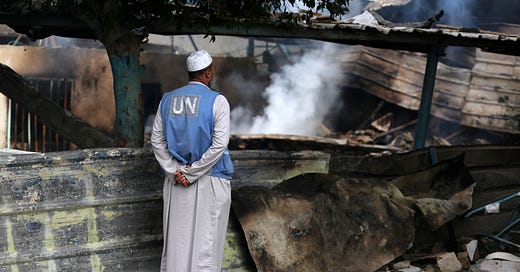

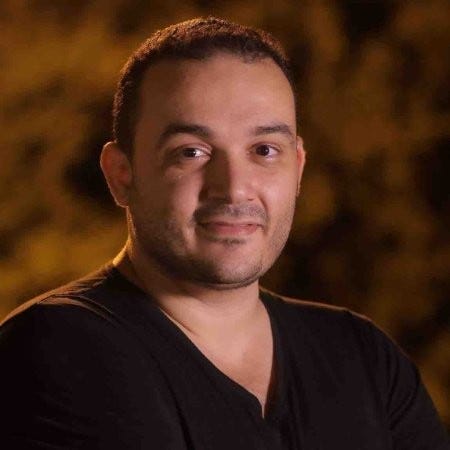

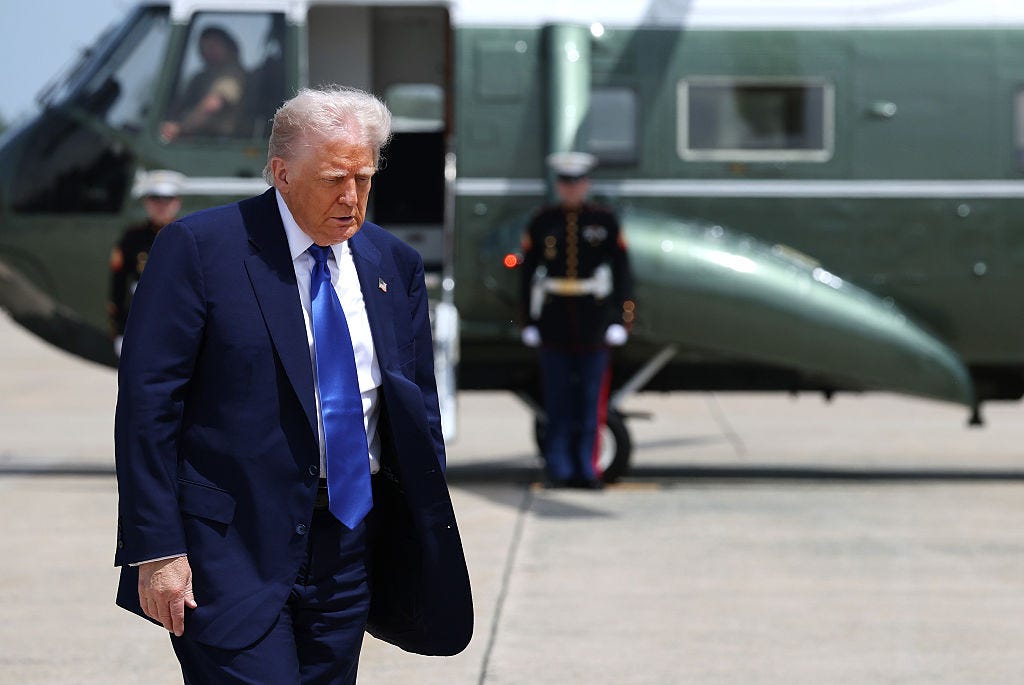

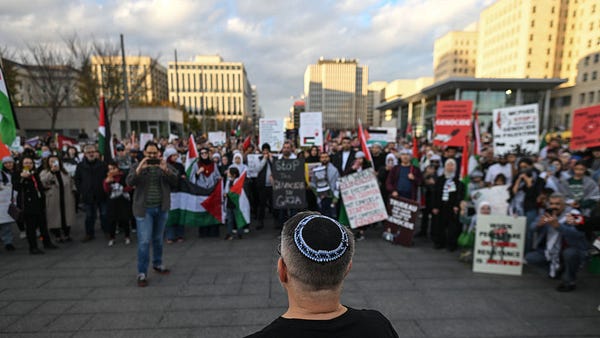

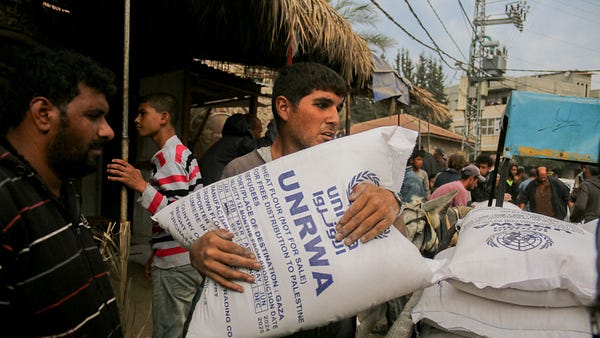



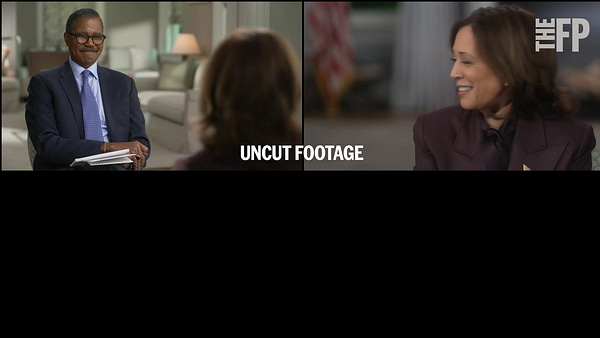

No surprise here. The media lost the public's trust when it decided "everything is political" and felt that gave them more than the right, it gave them the mandate to tell it like they thought it ought to be. I'm mid-70s and I remember well over half a century ago spending pleasant Sunday mornings in bed with a lovely woman, my incredible coffee, breakfast, and the NYTimes. Still have a lovely woman, coffee's even better, breakfast is healthier, and the NYTimes I wouldn't even line a bird cage with.
"“I’m surprised that there is humans doing this force,” Hussein said of Israeli soldiers, in broken English. “How could human became this evil, killing others, imposing collective punishment on over two million people with no reason? What are they going to gain? Why they are doing this?”
Curious questions considering that the government he served "did use force", "killed others", "collectively punished" thousands of civilians, many of whom were peace activists so there was no reason to "punish" them", had nothing to gain (and lost everything in consequence). As to why Israelis are doing this, perhaps it's because the Hamas leadership promised (this is well documented) many more Oct 7. Perhaps the sight of mothers and one year old infants being dragged into captivity triggered the Israelis, who knows?